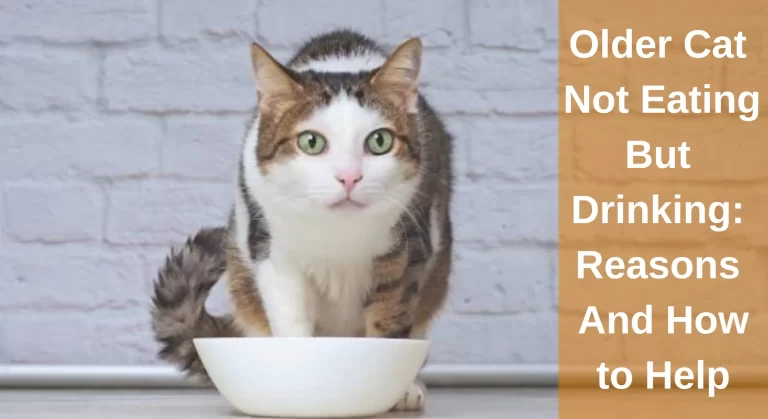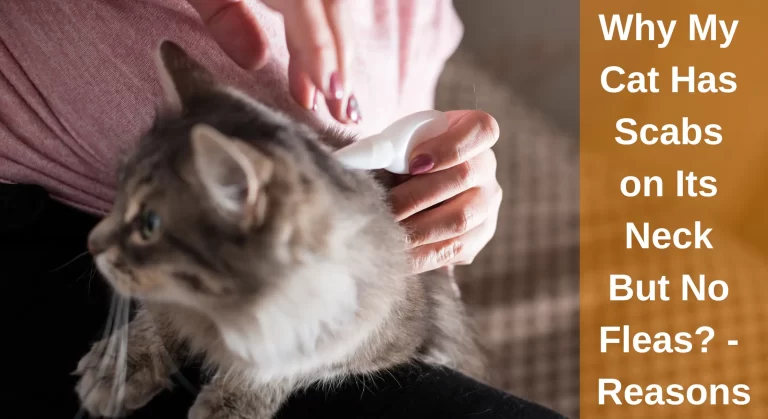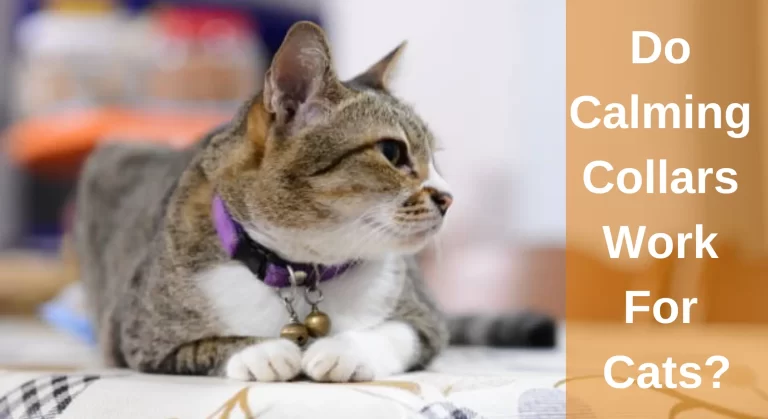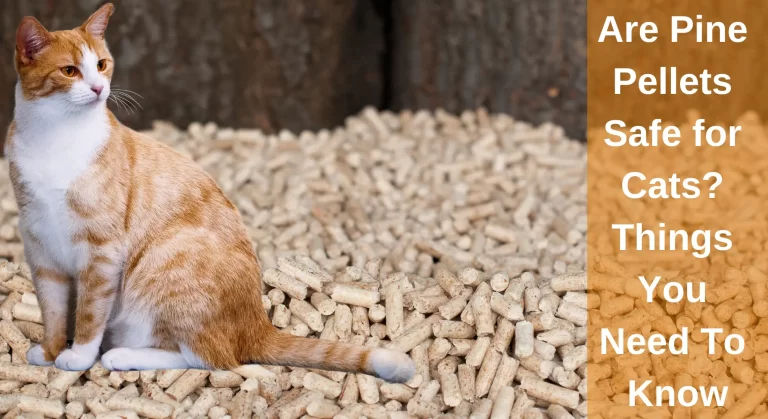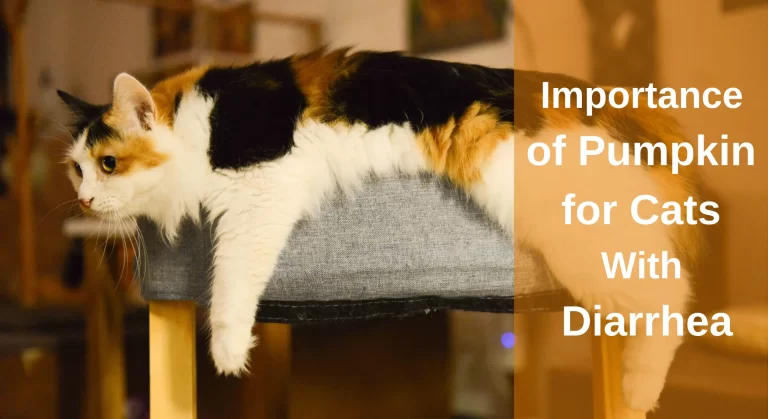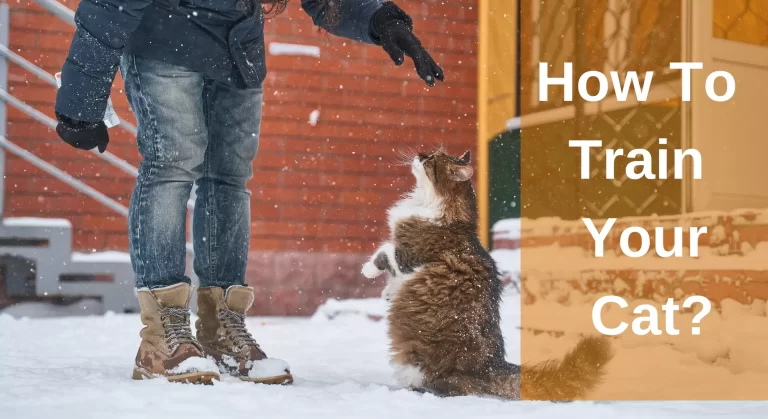Do Cats Make Weird Noises When Sick? All You Need To Know
It is well known that cats regularly create a variety of noises. When we pet them, we can hear them purr. When they need our attention, cats will meow. When they’re enraged and hostile, they’ll growl and hiss. Cats frequently make all of these noises, which may be used to interpret their emotional states.
It is always a concern if your cat makes strange noises that differ from those above and if their behaviour has changed. This will no doubt leave you wondering why they are making such strange noises. Do cats make weird noises when sick? It depends on the exact sounds, but strange noises might indicate disease.
When cats are sick, their meows may be louder, and their sound of them might differ from the norm. Five strange sounds indicate possible issues: wheezing, stridor, stertor, gurgling, and crackling. Also, sick cats typically become chatty and yowl more frequently (or meow to their people). However, any changes in behaviour should be cause for concern, and a sudden decrease in vocalisation can be as problematic.
In this article, I go more into the reasons why your cat makes weird noises when they are unwell, as well as other disease-related symptoms. Your pet can receive the care they need as soon as you know of its ill condition.
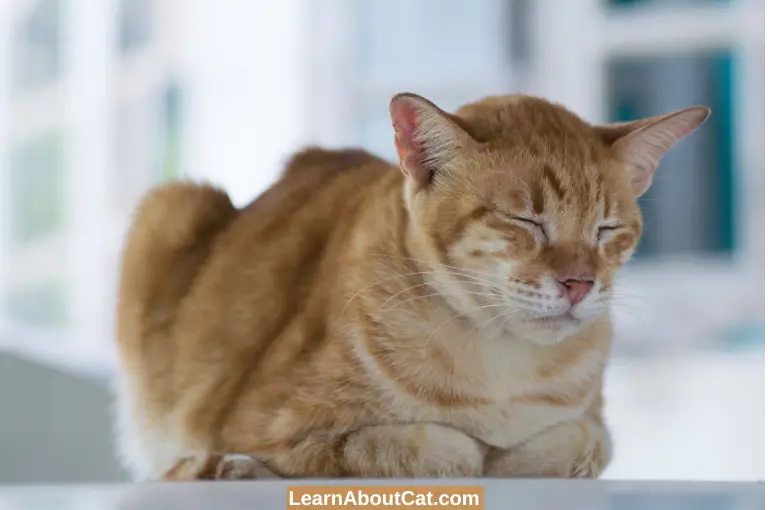
What Strange Noises Do Cats Make When Sick?
When a cat is ill, it will make certain noises. For example, a cat who is sneezing or coughing is most likely dealing with an upper respiratory infection. However, certain noises may be so peculiar and unexpected that they confuse owners greatly.
Knowing the strange noises sick cats make and why they do so is a good idea. Given how adept cats are at masking their agony, these noises might be the first indication that anything is seriously wrong. Find out what these noises mean so you can immediately take the cat to the vet.
1. Gurgling
Your cat may also make odd gurgling sounds from their tummy. This is merely the sound of gases moving through your cat’s digestive tract; there is no need to be alarmed. Cats naturally take in more air when eating quickly, producing stomach grumbling. Digestion also results in the production of several bubbling gases. But unusual gurgling noises from your cat’s throat are frequently signs of illness.
2. Wheezing
One of the strange noises your cat could make is a wheeze. You could hear a high-pitched whistling sound coming from your cat every time it exhales. The unusual noises we hear are caused by air becoming stuck in the lungs, and the lower airways cause the blockage.
The main cause of wheezing is asthma. Most veterinarians agree that asthma episodes are brought on by airborne allergens like pollen, dust mites, or cigarette smoke that irritate the airways. If these substances affect, your cat will depend on how wide and sensitive their airways are. In addition, there is a clear link between stress and asthma, with cats that are stressed out exhibiting more severe symptoms.
3. Stridor
Stridor is yet another peculiar sound that sick cats and kittens make. The condition’s distinctive high-pitched vibrating sound is brought on by constricting your cat’s upper airways. The two noises are so similar to one another that wheezing is commonly thought to be the sound. While wheezing only happens during the inhale, stridor can happen both on the inhale and the exhale.
Although these two strange noises seem surprisingly alike, they have separate sources. Asthma is caused by inflammation of the lower airways, whereas stridor is related to the upper airways. When there is a blockage in the airways in or just below the voice box, your cat or kitten frequently makes these unusual sounds.
4. Stertor
Stertor is a different sound made when a cat’s upper airways are blocked. The weird sound is a low-pitched rumble that sounds like snoring and happens either during the intake, exhalation, or both phases of breathing. Therefore, the difference between it and the stridor is in the pitch of the noise rather than where it occurs in the respiratory cycle.
Cats with flat faces (brachycephalic breeds), like Persians, commonly exhibit stertor as a result of their altered anatomy. Their soft tissue structures are unaffected; however, these cats have shorter noses. Flat-faced cats commonly experience the development of an enlarged soft palate, narrowed nostrils, or everted laryngeal saccules, all of which obstruct the upper airways.
5. Crackling
Your cat may also crackle when they are unwell. These fleeting popping noises are connected to your cat’s respiratory system and often indicate that the cat’s lungs are fluid-filled. The cracking noise may only be audible to veterinarians since it commonly occurs in near silence.
This condition is referred to in medicine as either pleural effusion or pulmonary oedema, depending on where the fluid is collecting. Just two potential reasons are congestive heart failure and infectious infections. Whatever the cause, it prevents the lungs from expanding correctly, depriving their bodies of oxygen.
6. Yowling
While yowling is similar to meowing, it is longer and more musical. If you hear your cat or kitten making odd noises like this, this is another indication that they are sick. However, unlike the other strange noises on this list, yowling is a purposeful vocalisation that cats make when they are in pain, as opposed to the other noises triggered by the sound of air travelling through constricted or wounded airways.
Any variety of diseases might be the cause of a yowling cat. To ascertain what is wrong with your cat, you must thus keep an eye out for other symptoms of illness (arthritis, dental disease, hyperthyroidism, or digestive issues).
Common Causes Of Changes In Your Cat Breathing
Consider a young, brachycephalic kitten. These cat breeds are distinguished by having short, flat noses, flat features, and voice box paralysis due to genetics. Respiratory problems result from these distinctive traits, particularly in animals bred for specific purposes. Among the breeds most badly damaged are Persian and Himalayan dogs.

If your cat is older than a year old and comes from an affected breed, we advise seeing your veterinarian. Other causes might just require minor medical treatment or surgery.
- Items like voice box paralysis that occurred might be among them.
- Suppression or anaesthesia
- Heart problems
- Inflammation or fluid retention in animal asthma
- Infection
- Throat infection
- Lung disease
- Laryngitis
- A problem with the nervous or muscle systems
- Obesity
- Parasites
- Tumours that are either benign or malignant
What are The Symptoms of Sick Cats Making Weird Noises?
Other indications of potential problems, such as loud breathing or your cat’s unsettling gurgling sound in their throat, include the following:
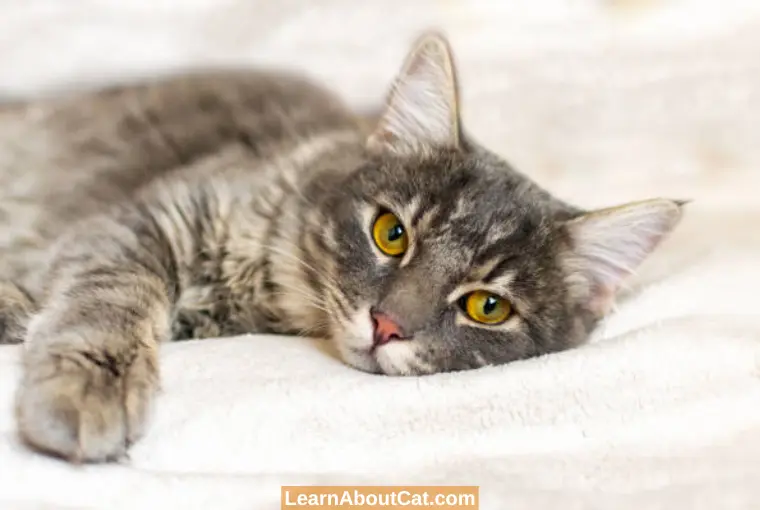
Signs that cats are sick:
- Behavioural changes include irritability, weakness, or reluctance to exercise.
- Inhaling while extending their neck or elbows
- Increased nostril size
- The chest and stomach move during breathing
- Open-mouth breathing
- Panting or breathing quickly
- Sneeze or coughing
- In the distance, you can hear a cat breathing heavily.
- Even while awake, snoring-like sounds
- Squeaking sounds
- Having trouble breathing
- Voice changes, such as the inability to meow
- Wheezing
How Do I Handle a Cat That is Heavily Breathing Through its Nose?
For various causes, your cat may be making odd noises when breathing. Fortunately, not all of them will need to see the vet, and not all of the reasons for noisy breathing are harmful.
If you have any urgent or substantial worries about your pet’s health, you take them as soon as possible to the vet. Also, look at some of the possible causes of your cat’s noisy breathing.
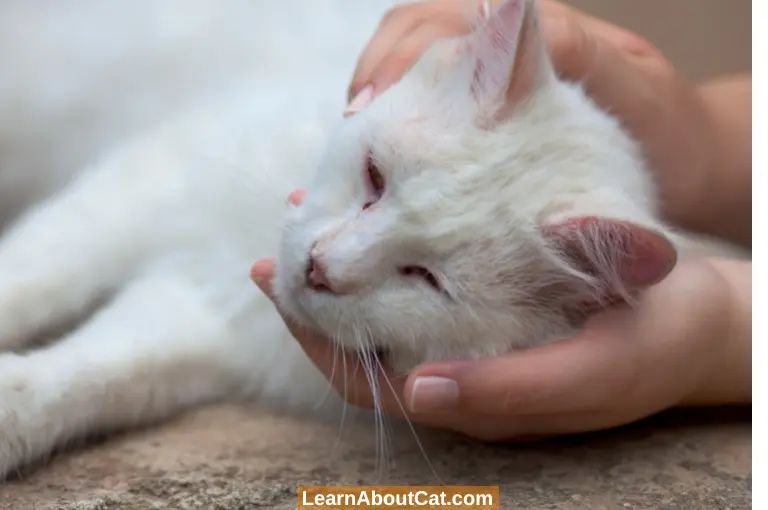
After being inspected and given any necessary medical care by your veterinarian, your cat will need plenty of rest in addition to fresh food and drink. She needs to feel secure and at ease within. You must provide the medications precisely as instructed by your veterinarian to get the best results. Don’t stop your cat’s medicine if she starts breathing and acting better since the problem can recur. Always return to your veterinarian as soon as directed.
Also, Check Out: Why Do Cats Pant in Car?
Why Is My Cat Gurgling In Their Throat?
When there is a strange noise being made during breathing, it usually indicates that there is a respiratory problem, whether it is acute or chronic. If treatment is needed, it should be addressed, so the problem can be corrected.
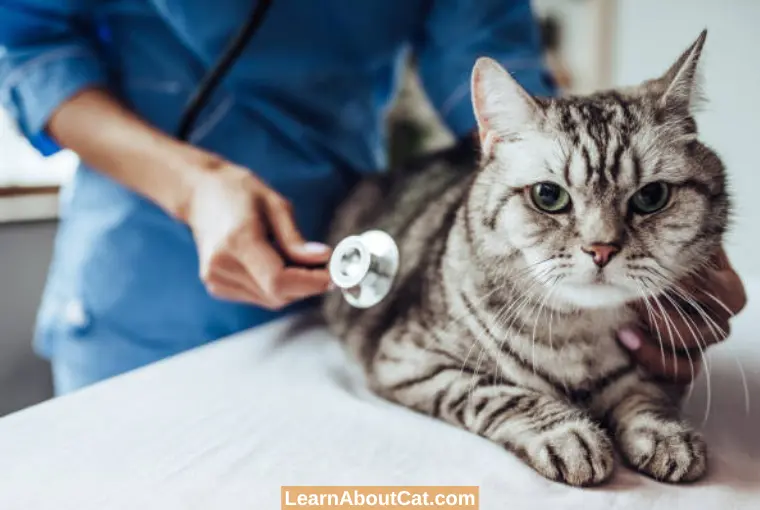
Fortunately, gurgling from your cat’s throat will be easier to detect than a change in breathing rhythm or other symptoms. This symptom may not be hazardous like other symptoms. Often, it won’t need veterinary attention.
It is, however, recommended that you contact your vet as soon as possible if your cat has recently undergone surgery.
There is a possibility that your vet may have accidentally injured your cat’s windpipe following surgery because of the way in which anaesthesia is administered.
Hence, make sure to ask your veterinarian about their preferred method, so that they may also be able to advise whether your cat may require a checkup.
Noisy Breathing of Stertor and Stridor in Cats
Let’s get back to understanding the strange noises a cat makes while it breathes. There are two primary forms of noisy breathing in cats; however, there might be others as well (if your veterinarian conducts an examination). Stertor and Stridor, which strangely sound like nice names for the little fuzzy animals, are the first.
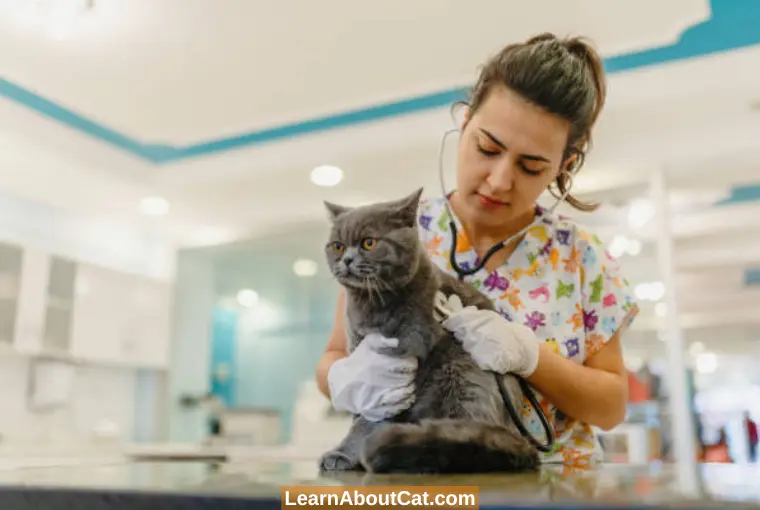
If you can identify the type of noisy breathing your cat produces, it will be simpler to identify any potential issues your cat could be having. Obviously, help you decide what techniques are the most successful for calming your cat. So let’s take a closer look at this:
- Stridor: Stridor really sounds like a high-pitched squeak on the cat’s other paw. The commonest causes are the nasal airways, upper windpipe or blockage of the voice box. Therefore, with a little breakdown difference, Stridor noises arise from an obstruction somewhere else in the upper portion of the body, whereas Stertor noises originate from a blockage in the neck.
- Stertor: This low-pitched sound is eerily similar to snoring. And it’s often caused by a throat airway blockage, exactly like when we snore.
We advise calling your veterinarian immediately if your cat has a throat blockage. They may advise you on what to do and whether it would be a good idea to let them inside.
When To Speak With a Vet
In the case that your cat has trouble breathing via its nose
If a family pet’s health and well-being are in jeopardy, it is generally a good idea to call the veterinarian at any time. This is so that even in the absence of symptoms or warning signs, your veterinarian may do general health checks and provide a diagnosis. You might avoid making needless travel and keeping your cat in the vehicle for a long time.
The warning indications listed below may suggest that it’s time to visit the local veterinarian:
- Your cat is either falling or fainting.
- The abnormal noises or breathing last for more than two hours.
- Your pet is experiencing seizures.
- Your cat is acting abnormally, not eating or hiding.
- They have blue or grey tongues or gums.
Frequently Asked Questions
Why my cat’s stomach gurgles?
A feline’s stomach makes a grumbling, gurgling sound called borborygmus, which refers to the bubbly sound gasses make as they pass through the stomach and the intestines.
In the gastrointestinal tract, gases are present because they are ingested with food or because they are created by bacteria working to digest the food.
What does it sound like when a cat has an upper respiratory infection?
When your cat tries to breathe, he might make wheezes, coughing or choking sounds, you may also notice your cat pawing at his nose and mouth.
Final Thoughts!
Do sick cats make peculiar noises, then? They do, in fact. Your cat might produce several weird noises, including wheezing, stridor, stertor, gurgling, and crackling. You should get advice from a veterinarian because all of these indicate a respiratory issue.
Additionally, a sick cat will yowl, which is a more typical sound. Cats will purposefully yowl when they are in discomfort or have an underlying medical condition, such as arthritis, dental disease, hyperthyroidism, or digestive issues. Along with these strange sounds, keep looking for any other signs, and if in doubt, see your veterinarian. Most likely, your cat is attempting to communicate with you that they’re not feeling well and need a little more attention.
Related Posts:
Who is Isabella?
My name is Isabella, and I am a dedicated and knowledgeable cat enthusiast. With years of experience caring for cats and a deep love for felines, I made a mission to help other cat lovers navigate the challenges of cat ownership.

